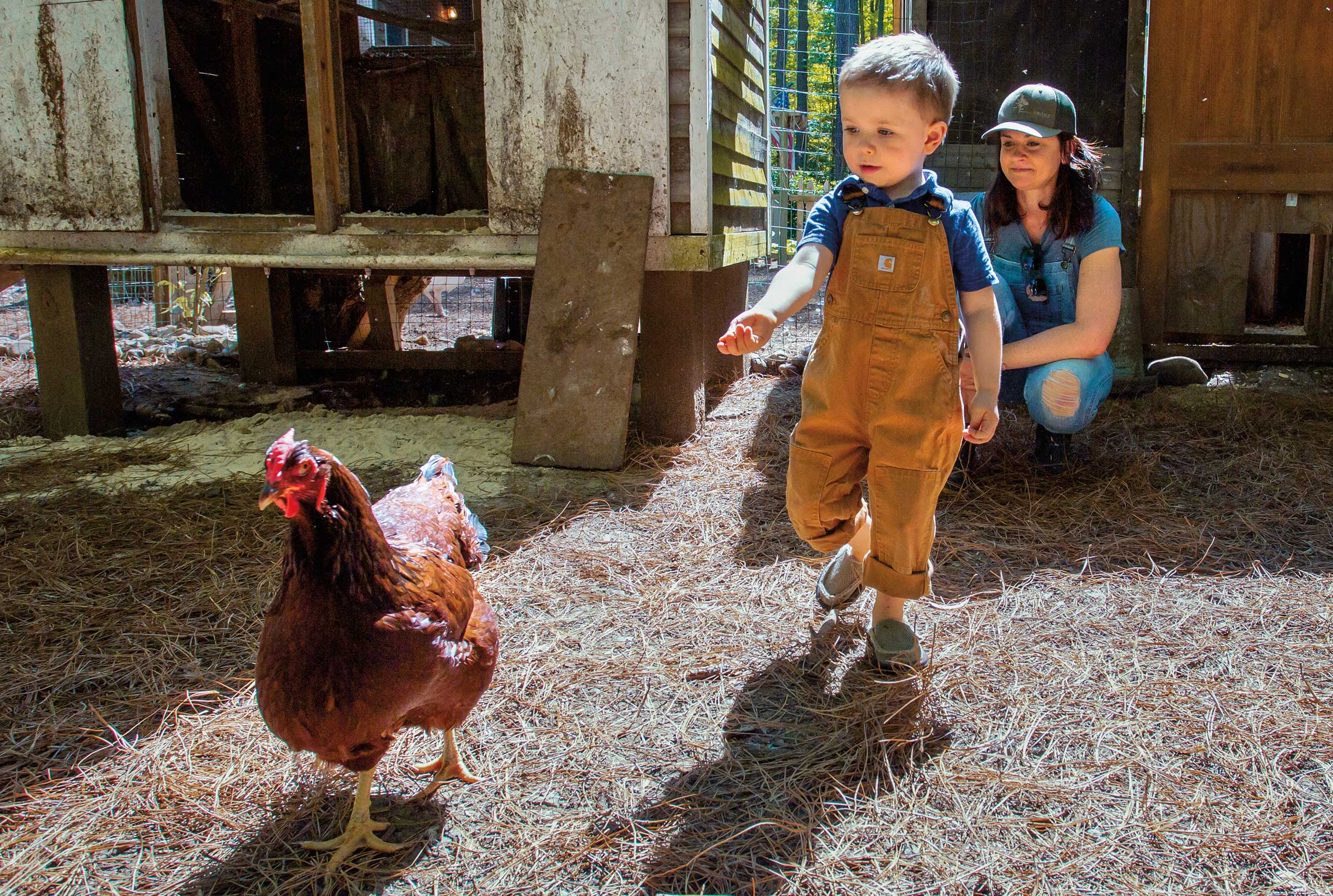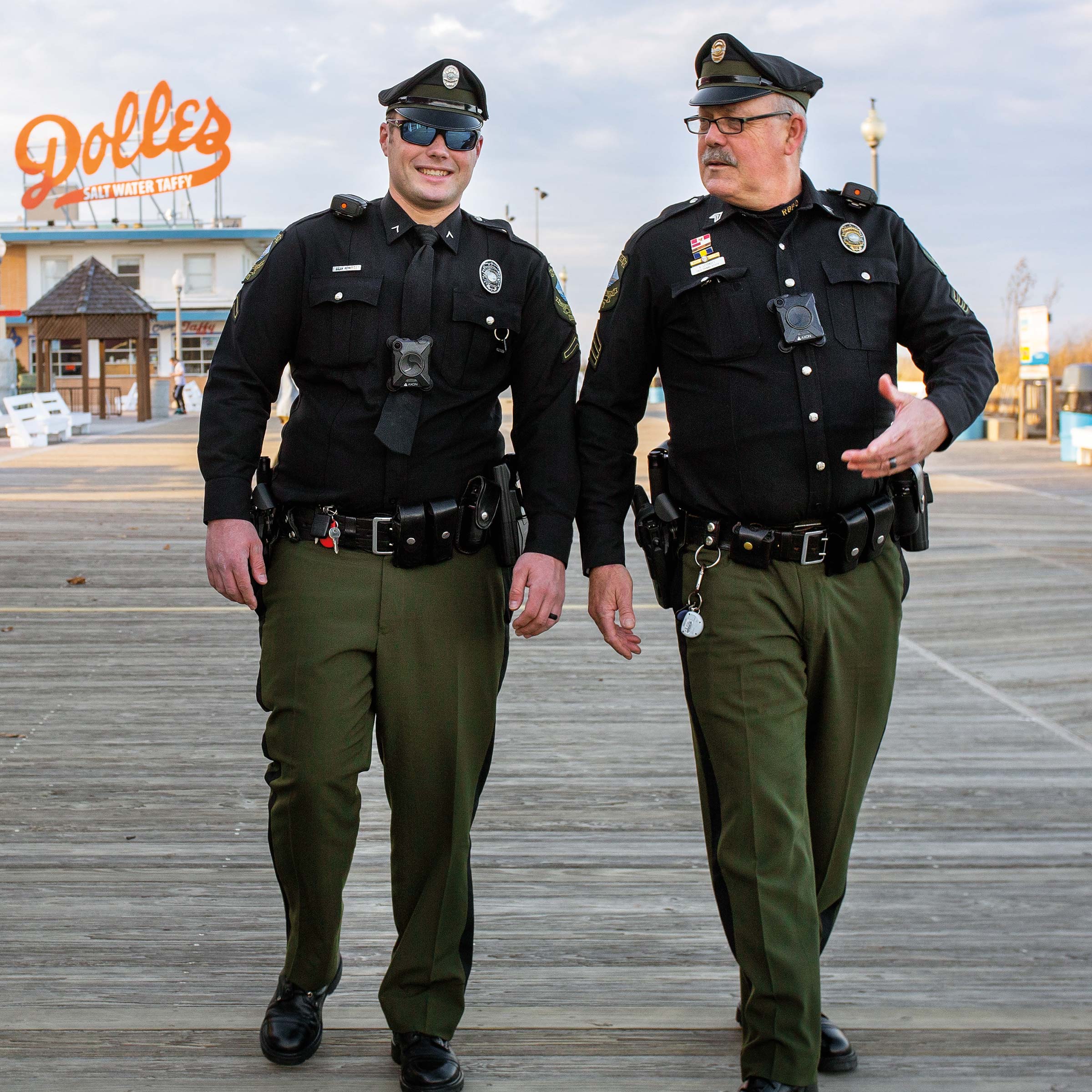Chick-a-Boom
- Details
- Written by Alissa Rosenstein
Backyard flocks are flourishing in coastal Sussex, giving eggs and comfort
By Lynn R. Parks | Photographs by Carolyn Watson
From the July 2020 issue

When Joanne Guilfoil was a child, she and her siblings were given three Leghorn chicks by their grandfather. Her mom and dad built a small chicken house in their yard in Westchester County, N.Y., and there the Leghorns, all roosters, stayed.
Until, that is, they were old enough to crow. The racket was too much and the birds were slaughtered. “I think that my mother used them in a curry,” Guilfoil says.
A story like that, tragic as it was for the innocent roosters, could dampen any interest in raising backyard chickens. But for Guilfoil, it was only the beginning. Following the Leghorn incident, her family got Plymouth Rock chickens, this time hens, a flock of which they kept through Guilfoil’s years growing up. And ever since, except her time as an undergraduate at the University of Kentucky, she has had chickens.
Now a Roxana-area resident, Guilfoil has a flock of 14 — 13 hens and one rooster. The birds are mixed-breeds except for two golden Sebrights. Those Sebrights are small (bantams) and lay eggs “the size of ping-pong balls,” Guilfoil says. “You need to eat around three of them to say that you had an egg for breakfast.”
A Long Way From Home
- Details
- Written by Alissa Rosenstein
In ‘normal’ years, overseas guest workers flood beach resorts in summer, drawing comfort and support from an army of volunteers
By Chris Beakey | Photographs by Carolyn Watson
From the June 2020 issue

Editor’s note: As a result of the coronavirus pandemic, coastal Delaware business owners expect to employ far fewer exchange visitors in 2020. Reporting for this article took place during the summer of 2019, giving a view of the guest worker experience in a typical year.
It’s 5:25 on a Tuesday evening in June 2019, a happy yet nervous time for a dozen or so volunteers in the dining hall at Rehoboth’s Epworth United Methodist Church. After two hours of preparing sandwiches, salads and desserts, they can only hope their upcoming dinner will be a proper welcome for hundreds of young people from around the world who will be working in area beach communities in the coming months.
At 5:30, when she can no longer stand still, Rehoboth-area resident Fabiola Ciliberti steps into the lobby, where the glass doors reveal exactly what she’s hoping to see: a stream of young men and women bicycling toward the church. Moments later she resumes her position at the entrance to the dining hall and beside the three-piece band, a perfect spot for watching surprised smiles as the guests step into the room.
Letter to a Young Cop
- Details
- Written by Alissa Rosenstein
Even in a small resort town, there’s no vacation from misfortune and misbehavior
By Victor Letonoff Jr. | Photographs by Carolyn Watson
From the May 2020 issue

One sergeant reflects on the day-to-day challenges, sharing insights that might deepen the public’s understanding — and help new officers find their way in a demanding, sometimes confounding, career.
Dear Young Cop:
There’s so much I want to tell you and so very much I want for you: to serve without receiving injury; to end your career quietly after 20, 25 — even 40 — years with the knowledge that you have done your job well. I want you to be filled with pride every day that you put on your uniform, gun belt, ballistic vest (always wear your vest, young cop). Mostly, I want you to feel both awe and humility at what an honor it is to be a police officer.
But who am I to write this letter? I’m not a big city cop whose career was filled with drama: homicides, drug busts and high-speed chases. Instead, I’m a sergeant in a small Mid-Atlantic resort town with only three entrances into the city, one of them over an antiquated drawbridge. The ocean flanks one end of town along with an old-fashioned bandstand, where outdoor concerts are often held. Beyond that is a mile-long boardwalk, built in the early 20th century for patrons at the luxury hotels (so they wouldn’t carry sand into the elegant lobbies). The town, originally founded in 1873 as a Methodist church camp, is often described as quaint and upscale.



